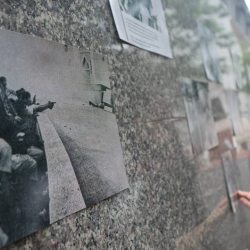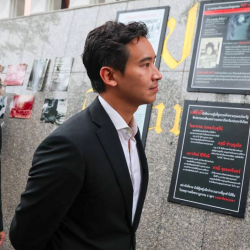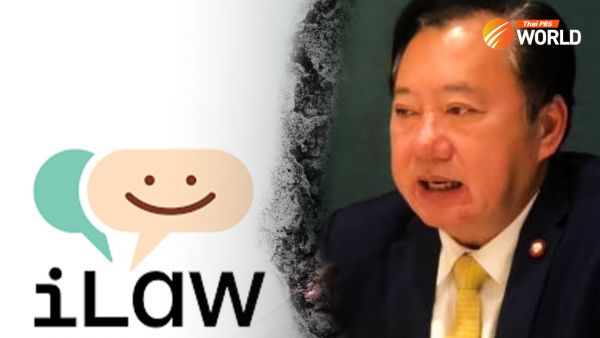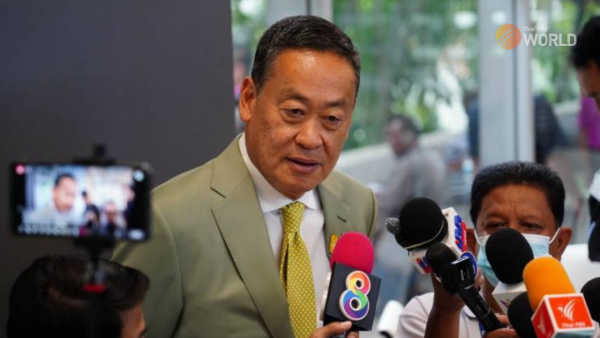Experts see three flaws that could end in tragedy for Move Forward
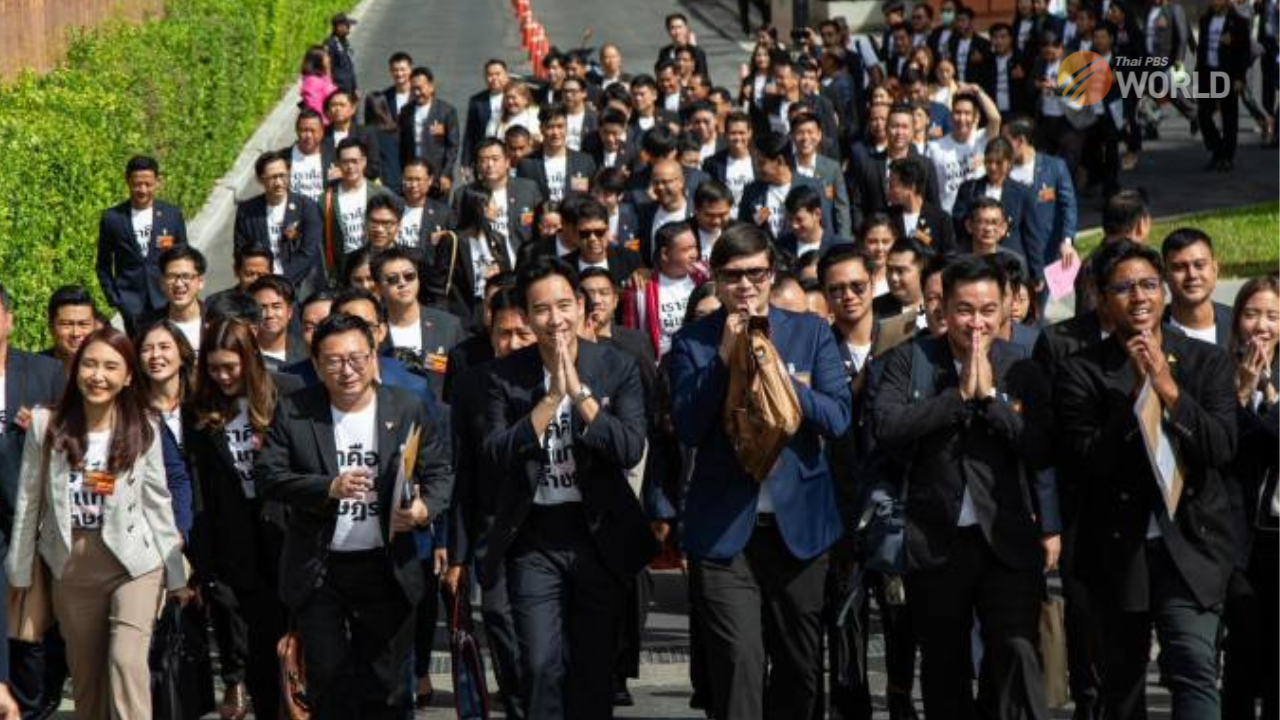
The Move Forward Party has been on the defensive ever since its shock election victory in May.
The party has taken what many observers describe as “political missteps” that may have cost it the prime minister’s seat and a chance to lead the new coalition government. Instead, it now sits on the other side of the House as the largest opposition party.
Pita Limjaroenrat, who led Move Forward to electoral victory as its only PM candidate, failed to secure majority support in Parliament for the top job. The PM’s seat fell instead to Move Forward’s former ally, Pheu Thai, which displayed ruthless efficiency in the political games that followed the election.
Meanwhile, Move Forward faced strong opposition from Thailand’s elitist establishment, illustrated when senators blocked Pita from becoming prime minister before waving through Pheu Thai’s candidate, Srettha Thavisin. Pita won a mere 13 votes from the Senate, while Srettha bagged 152.
The progressive party was also criticized after its new executive board voted to expel MP Padipat Suntiphada when he refused to resign as deputy House speaker so that new party chief Chaithawat Tulathon could become opposition leader.
Padipat’s ouster was seen as a sham maneuver that allowed him to keep his deputy House speaker’s post and enable Chaithawat to become opposition leader. Critics said the move showed Move Forward was no better than the “old politics” of self-interest and double-dealing that it claims to disdain.
‘Party has three problems’
Olarn Thinbangtieo, a lecturer at Burapha University’s Faculty of Political Science and Law, said Move Forward faces three major challenges – problems with communication, unity, and managing its supporters.
Regarding Padipat’s ouster, he reckoned that Move Forward had few other options in the current political context, where old political enemies are seeking to eliminate the party and negate the 14 million votes it won in the election.
Olarn pointed fingers at the elitist establishment, saying it was making moves against the party via the Constitution, senators and coalition partners.
“Move Forward has limited options when it comes to maintaining its mandate from voters in the parliamentary system. But the problem is Move Forward has failed to offer explanations for its actions, which is why it is now in the hot seat,” the analyst said.
The party could have explained that Padipat’s removal was aimed at protecting Move Forward voters’ mandate, even though the move was seen as a cynical exploitation of a legal loophole.
Olarn said Move Forward’s argument should be that “unfair” constitutional rules had put the party on the opposition bench, and that it needs to secure both posts for Chaithawat and Padipat to perform its parliamentary duties efficiently.
As per the Constitution, the opposition leader’s post goes to the MP who leads the political party with the largest number of opposition MPs, none of whom can serve as government minister, House speaker, or deputy speaker.
In order to retain his MP seat, Padipat must join a new party within 30 days of his expulsion.
Olarn said Move Forward has been unable to get the message across to the public that it is the victim of a skewed political system.
“Move Forward needs to tell the public that its actions were meant to protect the parliamentary system that is being undermined by this Constitution,” he said.
The current charter was written and passed under junta rule in 2017.
Olarn also pointed out that Padipat had won majority support as deputy speaker in the House of Representatives. He explained that it was not uncommon in other countries for an opposition MP to be a House speaker or deputy speaker.
‘Overnight celebrities’
The analyst also pinpointed a lack of unity as another key challenge facing Move Forward. He said although the party strongly identifies as “pro-democracy”, its politicians and supporters seem to have low tolerance for views that differ from their own.
He said Move Forward’s critics were often bombarded with a strong backlash, even from Parliament. “Some of the party’s MPs have become arrogant after being elected. They can’t seem to behave appropriately as representatives and public figures,” he said.
Piyabutr Saengkanokkul, the former secretary-general of the party’s predecessor, Future Forward Party, has become a prolific critic of Move Forward. Despite being banned from politics for 10 years following Future Forward’s 2020 dissolution, Piyabutr regularly pushes proposals on what Move Forward and its leadership should do to achieve its goal of national reform. He also helped campaign for the party at the last election.
Move Forward grew rapidly, winning 151 MP seats in this year’s election, compared with 80 won by Future Forward in the 2019 poll.
Piyabutr commented that many election candidates had become celebrities overnight after winning MP seats. He said that the ego and inexperience of these debutant politicians made Move Forward vulnerable to criticism.
Many of these political newbies focused on creating viral social media posts and making headlines, he added.
“If you think this way, you should be a [social media] celeb, not a politician,” he said.
Piyabutr also highlighted criticism that many Move Forward MPs are hot-tempered, inexperienced, and poor at management.
Olarn said Move Forward should learn from its missteps, or the same problems would recur. He blamed the party’s political inexperience and said this could only be corrected by serious action from the executive board.
However, the analyst added that Move Forward’s lack of unity also reflects the fact it is not owned by an individual or faction, unlike other parties.
“This is natural for a party with no owners. All members are highly independent,” Olarn said. But he also warned that any failure by executives to address the unity issue could weaken the party at a time when it faces threats from the outside and enemies waging “legal warfare” against it.
Overzealous fans
Move Forward also needs to deal with its “overzealous fans” who tend to harass or even bully party critics in the name of liberty, said Olarn.
“This is not civilized democracy and is not progressive at all. In the end, it’s the Move Forward Party that stands to lose [from this behavior],” he said.
Olarn pointed out that even Piyabutr was attacked fiercely by Move Forward supporters when he criticized the party’s leaders for “doing nothing” to support Pannika Wanich, another former Future Forward executive who joined Move Forward’s election campaign.
The Supreme Court banned Pannika from political office and elections for life after ruling her guilty of breaching ethical standards for an act deemed disrespectful to the monarchy.
After being bombarded by the party’s supporters, Piyabutr said he would stop making “straightforward critical” comments against Move Forward.
Tolerance and logic
Olarn said Move Forward should encourage tolerance and logical thinking among its supporters if it really wants to create better politics.
“It’s not just about policies or ideologies: you also need to create a fandom that is civilized,” he said.
Along with issues of communication, unity and supporters, Move Forward must also focus on its duties as the core opposition party, Olarn said. He forecast that the ruling Pheu Thai Party and its allies would get “much tougher” with Move Forward as this parliamentary term progresses.
He also sees a strong chance of Move Forward being dissolved by court order amid allegations that its reform plans constitute an attempt to overthrow constitutional monarchy. He pointed to recent developments, including the lifetime ban for Pannika and a fresh lawsuit alleging grave ethical breaches filed against Padipat by serial petitioner Srisuwan Janya.
By Thai PBS World’s Political Desk

